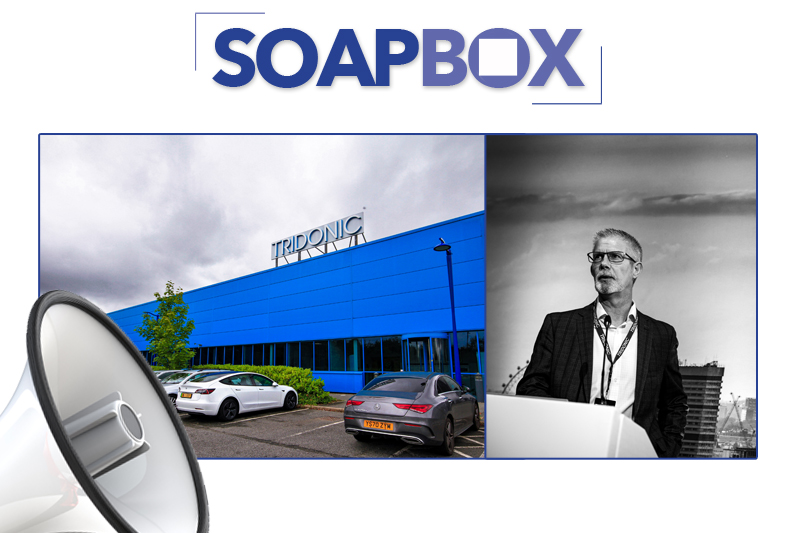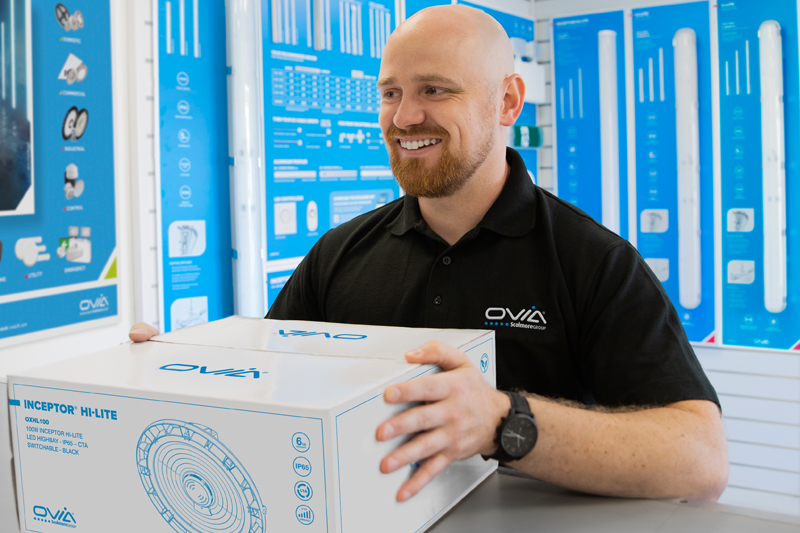Jack Parser, Development Director at Crystal EV, says the time is right for electrical wholesalers to consider electric delivery vans and installing EV chargers at trade counters.
Close to one in five of all new vans registered in the UK in the year to April 2023 were electric – up 70% on the previous year. Given the additional cost of purchase, less convenient refuelling and smaller range than diesel ICE vans, why are so many UK businesses going electric?
Long-term thinking
While headline-grabbing tax breaks on commercial EVs and the available grants for businesses to install EV chargers are certainly incentivising the shift, fleet managers looking deeper into the sector are seeing a range of longer-term benefits. Cost savings on fuel and maintenance, improved operational efficiency, environmental benefits and goodwill from customers that brings, and even the profitability of operating trade counter chargers commercially and swinging the scales in favour of electrifying fleets.
While the upfront cost of EV vans is higher than that of their ICE equivalent, thanks to the cost of Lithium battery packs, electric vans offer significant running cost savings compared to their diesel or petrol counterparts.
With electricity generally cheaper than fossil fuels, the cost per mile for operating an electric van is substantially lower. Modern diesel vans can achieve around 6-7 miles per litre, costing circa 35p/mile @ 160p/litre. EVs like the new Ford E-Transit offer 2.5m/kWh, which is around 14p/mile even at a hefty daytime electricity rate of 35p/kWh. Get a better business tariff across the company or charge vehicles overnight, and that cost could be half!
Additionally, electric vehicles have far fewer moving parts, which translates to lower maintenance and servicing costs. Components like engines, transmissions, and exhaust systems are either simpler or non-existent in EVs, reducing the frequency and cost of repairs and reducing work downtime through breakdowns. Electric power trains will also last a whole lot longer than ICE, as Tesla’s recent 660,000km clocked on a Model S on its original battery demonstrates. The upshot is potentially a longer replacement time frame for vehicles, with proportionally lower monthly lease or purchasing costs.
Incidentally, that same E-Transit has a range of 150-200 miles on a single charge, depending on load. Plugged in and charged overnight, how many vans in your local delivery fleet do more than that mileage per day? If they do, the question becomes, where would they charge if they were not at the depot? Contrary to public opinion there is a huge and growing number of commercial chargers available. Just take a look at ZapMap, and there is barely a spot in England where you are more than 10 miles from a public charger.
Managed charging
On charging, one of the primary benefits of transitioning to electric vans is the ability to establish a unified charging infrastructure across your fleet. Unlike the often insecure and cumbersome use of fuel cards, electric charging can be centrally managed, reducing the risk of fraud and misuse. Charging stations can be installed at depots, warehouses, and trade counters, simplifying the refuelling process and ensuring that vans are always ready for their next delivery. For drivers charging at home, charges put into the company vehicle can be directly billed to the company (depending on the charger and energy supplier) and electronically protected against fraud or misuse as the charger establishes a connection with the vehicle.
How many customer vans visit your trade counters every day? Having installed chargers to fuel your fleet overnight, you can offer commercial charging to customers. The typical profit margin on commercial charging is in the order of 25p/kWh – or around £5.50 per hour per 22kW charger in use. Just a few chargers at each trade counter could prove lucrative, especially as more businesses turn to EV vans. Alternatively, charging on your site can be offered at a discount or embedded into a loyalty scheme to improve your customer attraction and retention.
Strategic move
As the adoption of EVs grows, having convenient charging options for customers sooner rather than later will set wholesalers apart from competitors.
The transition to electric delivery vans offers a compelling array of benefits for electrical wholesalers, from significant cost savings and environmental advantages to enhanced customer engagement and simplified fleet management. By carefully evaluating your specific needs and taking advantage of government incentives, electrical wholesalers can make an informed decision that supports their business goals and contributes to a sustainable future.
The shift to electric vans is more than a trend – it’s a strategic move towards long-term efficiency and competitiveness in the evolving wholesale marketplace.
For more information, click here





